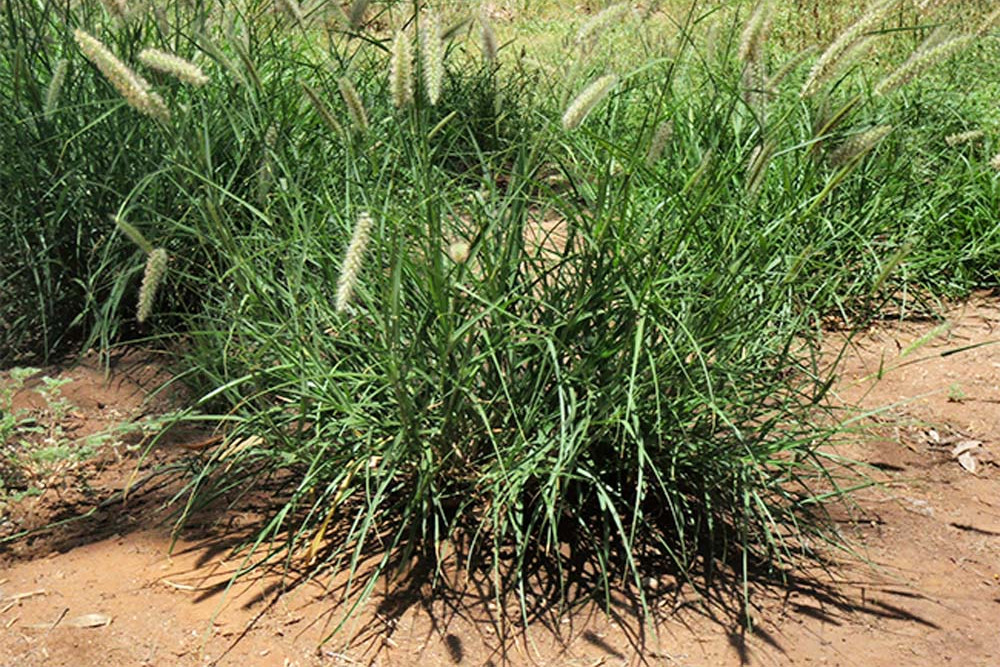On The Land
2 April, 2025
Keep off the grass:
A QUEENSLAND Senator and the Federal Member for Kennedy are raising their voices against moves by the Albanese Labor Government to declare buffel grass as a “Weed of National Significance”.

Shadow Minister for Northern Australia, Senator Susan McDonald, said attempts to declare buffel grass as a “Weed of National Significance” were another example of the Albanese Government focusing on the wrong priorities and helping activists instead of industry.
“Buffel grass was introduced in the 1920s as a productive fodder in Queensland and it did the job it was meant to do, becoming an important component of rangeland grazing,” she said.
“I saw a comment from a grazier recently who said ‘buffel grass should be declared a pasture of national significance’ and that’s true.
“Declaring buffel grass a weed would be catastrophic to graziers across Australia who rely on it for crucial fodder to keep their operations going.
“It also reduces erosion and dust storms.
“There is no justification for this move and I encourage everyone affected to make their thoughts known to the Federal Agriculture Minister, as I will be.”
Senator McDonald said the Queensland LNP Government was joining the campaign against the move.
“The whole process lacks transparency, its impacts are unknown and details about who would manage buffel grass are non-existent,” she said.
“There are suggestions biological controls may be implemented but that might harm native plants and animals, in addition to the economic prosperity of regional Australia.
“There are far too many questions about this process which is being undertaken without any consultation with industry, and I will be joining State Primary Industries Minister Tony Perrett to ensure Queensland isn’t subjected to this outrageous and dangerous declaration.
“It’s also concerning that the Albanese Labor Government is targeting buffel grass while known pests such as pigs, cane toads, fire ants, fall army worm and navua sedge are still proliferating and causing enormous damage.
“It is yet another example of this government rushing to appease activists by attacking primary industries in this country, particularly beef production.
“Labor has banned live sheep export, it has banned net fishing in North Queensland, it has launched damaging water buybacks in the Murray Darling and it is happy to sacrifice farming land for solar and wind farms.
“The people of Australia should be extremely concerned that our food security is being undermined by its own government.”
Member for Kennedy Bob Katter has also voiced strong opposition to the proposed listing of buffel grass as a Weed of National Significance, urging the government to abandon the proposed listing.
“Buffel grass wasn’t brought here by accident – it was introduced because it’s one of the best options we’ve got. It holds the soil together and keeps the cattle fed even during drought,” Mr Katter explained.
“The Gulf and Peninsula were built on buffel, Brahman, and bitumen.”
He said declaring buffel grass as a Weed of National Significance could impose legislative restrictions, mandate removal efforts, and initiate biological control research aimed at eradication.
Such measures would threaten one of Australia’s most vital pasture species, which underpinned the livelihoods of countless Aussie farmers and sustained production of beef that was essential for domestic and international food security.
“Buffel grass is essential to the northern cattle industry, and to label it as a weed would be counter-intuitive, turning all of the North into a weed-infested dust bowl,” Mr Katter said.
“Talk to any northern cattle farmer and they will tell you it is not just good cattle fed, buffel grass protects soil, cools the ground, sequesters carbon, and supports native fauna. Its deep-rooted resilience has dramatically improved rainwater efficiency and environmental sustainability across Australia.
“Buffel grass is not some noxious weed - it’s an improved pasture grass. It holds the soil together, soaks up the rain, and has improved sustainability while reducing erosion.
“Meanwhile, terrible invasive species like lantana, prickly acacia, rubber vine, and feral cats and pigs, should be demanding our attention. Why on earth are we wasting our time even talking about this?”


